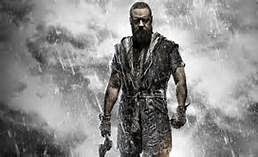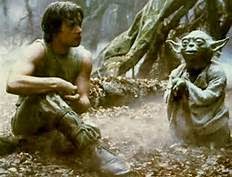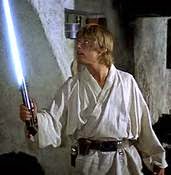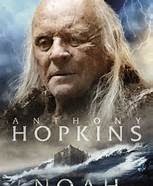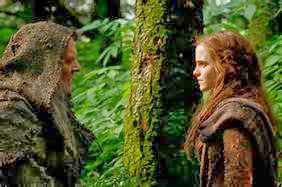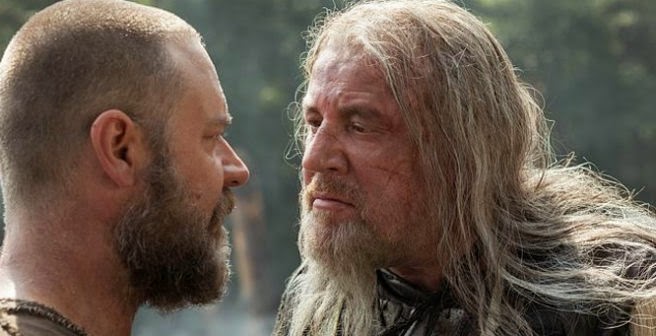The Gospel of Salvation Lost at Sea
NOAH THE MOVIE: A Review
(2 Tim. 4:1-4)
“GIVE US A BIBLE MOVIE!”
It was in the days of ancient Israel that the people became discontent with God and demanded an earthly king—one they could see with their eyes. They ended up with Saul (See 1 Sam. 8-15). Likewise today, mankind (Christians included) has become bored with what they say are the worn out messages in the Holy Scriptures (that were written by God Himself). They instead crave an action film that they can see, hear, and almost feel—a visual massage to activate the senses and stimulate the imagination. In the Internet age, the Bible simply cannot deliver what the culture demands: entertainment, not truth. The movie Noah is what we end up with.
Not since Mel Gibson’s The Passion of the Christ has there been such a media buzz about a so-called biblical movie—this time an action-packed, PG-13 rated thriller, with a stellar Hollywood cast. Darren Aronofsky’s Noah stars Russell Crowe (The Gladiator) as our ancient forefather Noah; Anthony Hopkins (The Silence of the Lambs) as Methuselah, Noah’s grandfather; Emma Watson (Harry Potter) as Noah’s stepdaughter-turned-daughter-in-law, and Nick Nolte (Lorenzo’s Oil) as the voice of Samyaza, the Watcher (fallen angel) king.
In case the reader is already detecting some abrupt detours from the biblical text, let’s briefly review what the Scripture actually says about the man Noah and his famous flood before we continue. According to Genesis 6 and 7:
- The wickedness (sin) was so great on the earth that God planned to judge the world by flooding it with water
- But Noah was a blameless and righteous man who walked with God
- God commanded Noah to build an ark so that Noah, his family, and the animals would survive the flood in order to re-populate the earth after the flood
- Noah did all that God commanded him to do, to God’s specifications
- Noah entered the ark with his wife (not named), his three sons and their wives, and all the birds, animals, and creeping things by twos; male and female, clean and unclean
- God sent the rain for 40 days and nights, as promised, and the ancient world was judged by water
- Every living thing that was not on the ark perished
- After the flood, God told Noah and his family to fruitfully multiply children—which they did
- The ark is a foreshadowing of God’s salvation for those who would believe upon Him and walk with Him—a picture of the Savior—the Lord Jesus Christ who purchased our salvation at the Cross to rescue us from our sin
The man Noah in the movie is unrecognizable to Bible students. The movie’s Noah is a primeval sort of Jedi knight who relies on the Dark Force to guide and protect him on the foreign planet earth. Rather than the upright and blameless man from Scripture, this Noah is portrayed as a super hero environmentalist on a mission from “the Creator” (the word “God” is never uttered in the movie) to rid the planet of human life—including his own grandchildren.
In this dark epic, Noah is on the side of the evil Storm Trooper characters (Watchers), emissaries of the Death Star that are commissioned by “the Creator” (who sounds more like evil Emperor Palpatine) to build a boat big enough to save all the animals from the great flood that is coming to destroy humanity.
Troubled about his mission in this apocalyptic disaster, Noah seeks wisdom—not from God—but from his grandfather Methuselah. Methuselah, a wrinkled sage bearing a striking resemblance to grandmaster Yoda, is found by Noah and his son Shem in a misty mountain cave, just like Luke Skywalker finds Yoda in a swampy cave on the planet Dagobah, where Yoda trains Luke to master The Force. In Noah, Methuselah wields his own wizardry to assist his grandson in experiencing his prophetic visions of doom. To the chagrin of Noah, he even heals the barrenness of Noah’s adopted daughter who later marries Shem.
The writers and producers of the movie not only take excessive creative license with regard to the Bible account—they rewrite the entire narrative—by adding in heavy doses of the erroneous Apocrypha, Eastern mysticism, and other extra-biblical ideas—thus totally destroying the meaning, the veracity, and the message of the Book of Genesis. The Scripture is thoroughly ravaged, as I will demonstrate below.
The grace of God is not seen in this ungodly film, nor is His plan to send a Redeemer who would come from Noah’s lineage to save sinners from eternal damnation.
NOAH THE MOVIE: A SYNOPSIS
Granted, the few chapters in the Bible that mention Noah could hardly fill a movie script, but perhaps God intended it that way. The writers for Noah took this humble narrative to dark, brooding, and unseemly places never devised nor sanctioned by God.
Here’s a painful recap:
From the opening of the film the audience is informed that “In the beginning…the Watchers were a band of fallen angels who helped Cain’s descendants.” Later we’re introduced to these hellish creatures: 14-foot tall nonhuman giants with six rock-like appendages and glowing unsymmetrical eyes—entities that look like an extremely crude version of the Hollywood Transformers (or in keeping with the Star Wars theme, exotic creatures from another star system, perhaps Tatooine).
Young Noah is shown with his father Lamech taking part in a rite of passage ritual as a band of dried snakeskin is wrapped around his arm by his father. Minutes later, Noah watches in horror (from behind a large boulder) as his father is brutally murdered by the treacherous Tubal-Cain in a botched attempt to kill off the line of Seth.
The scene flashes forward several years with Noah and his two young sons together on a rocky mountainside; baby Japheth still back at the tent with his mother. Just then a single raindrop falls to the earth and immediately sprouts into a delicate white flower—a mystical foreshadowing of things yet to come in Noah’s life.
Just then a wounded fox-like creature with scales runs toward Noah and his sons and collapses on the ground before them. Noah removes an arrow from the dead animal, then burns the carcass with his two older sons in hand, warning them about the sinful, wanton killing of animal life (but Noah’s sons are never taught about the sin of shedding human blood taking place all around them at an alarming rate). Before the fire is extinguished, a band of armed marauders approach them in ominous fashion. Like a scene out of Return of the Jedi, Noah finds a wooden martial arts staff–akin to young Skywalker wielding his light saber against Vader’s forces—and engages the blood-thirsty men in armed combat.
Just then Noah has a dark vision: he looks down to find his feet stuck in a bloody sludge, when suddenly he is engulfed in water and swept into the murky deep with human flotsam and jetsam floating around his head as he treads the polluted water. He will have this vision again.
Instead of crying out to God because of the horrors he’s seen, Noah calls out to Methuselah.
Noah then travels with his young family to find refuge in this foreboding, forsaken, and frightening world. They come across an encampment recently massacred by ruthless invaders—and are forced to step over dozens of dead bodies littering the barren landscape as they pass through. But in the midst of the carnage, they rescue a young girl, named Ila, who had been savagely wounded during the bloody siege that killed her family. Noah and his wife, Naameh, adopt Ila, and will sadly learn that her injuries have made her barren and not a good marriage candidate.
Flash! All of a sudden, Noah is temporarily struck down by Samyaza, the Watcher king, and dragged to safety. Samyaza vows to protect Noah’s family while Noah travels up the mountain to look for his wise grandfather.
At this point the audience is given more information about these Watcher creatures. According to Crowe’s narration, the Watchers were formed on the second day of creation. Their assignment was to watch over Adam and Eve and to teach mankind about creation. Oh yes, and Methuselah was the only man who had the ability to protect them (through his mystical abilities of course).
Noah and Shem find Methuselah, a mystical wizard-like character in a murky mountainous cave. Methuselah puts Shem in a trance so that he and Noah can discuss the troubling matters at hand. He also slips a potion into Noah’s tea that invokes yet another vision of the pending deluge for Noah.
Before returning home, Methuselah gives Noah a magic seed pod from the Garden of Eden (yep, the same garden that Adam and Eve sinned in, that the Bible says is no longer accessible to man [Gen. 3:24]) and tells him to plant it in the earth when he gets home. Noah does as he is told.
Noah isn’t home long before a disgruntled Watcher (unnamed) attempts to kill him. Just then water gushes up from the earth where Noah had just planted Methuselah’s magic seed pod, and the rocky, barren, and desolate earth sprouts into a lush forest in mere moments. “This is our ark,” says Noah. The once unfriendly Watcher then says to his Watcher band, “We will help this man.” And they do. With Noah as the building foreman, a veritable army of Watchers proceed to construct an ark, stripping the newborn forest of its trees with their multiple stony limbs and machine-like strength. Noah warns, “It begins.” (But “it” is NOT what you’re thinking).
First the birds come, not two by two, but in massive, menacing swarms. Noah’s wife concocts an incense to put the birds to sleep (presumably for the entire boat ride).
Next come the snakes and creeping reptiles that cover the earth like hungry locusts in a cucumber field (by the way, the snakes out-number the rest of the crawling creatures).
Last come the wild animals, en masse, as they stampede into the ark; Noah’s family standing by with smoking censors in hand to knock them out with Naameh’s special anesthesia.
Meanwhile, Shem and his stepsister Ila fall deeply in love but… alas, she is barren. Will they marry?
To appease his wife’s wishes, Noah then sets out to find a wife for Ham among the wicked and riotous throngs (Japheth remains a young boy for the duration of the film), but has a drastic change of heart after seeing an image of himself amidst the crowd (Skywalker had a similar vision in Yoda’s cave). He suffers yet another vision, this time it is one of a global, fiery judgment. “There will be no wives. The wickedness is in all of us. I’ve seen it,” bemoans Noah. “We will work, complete the task, and then we will die.” Remember, “the Creator’s” plan all along was to save only the animals….
Naameh becomes angry with Noah for depriving their sons of wives…and children, so she treks up the mountain to find Methuselah in hopes that he will intervene in the matter. He does.
While crawling on the ground to find wild berries, Methuselah stands up to see a burdened Ila in his path. She stops to share her predicament with him. As Methuselah blesses Ila, he touches her womb with his hand, causing Ila to wince in pain. It is a confirmation of Methuselah’s other abilities: healing touch. He had just opened Ila’s womb (again, Methuselah, wearing his scruffy hood, bears an uncanny resemblance to Obi Wan Kenobi played by Sir Alec Guiness in Star Wars).
Meanwhile, the plot thickens. King Tubal-Cain has been reinforcing his army with forged weapons and war rhetoric. They prepare to slay the giants (Watchers), kill Noah and his family, and pirate the ark. The only thing that this movie has in common with the Scripture account is the violence (Gen. 6:11,13).
With the drumbeats of the looming battle off in the distance, Ham leaves the safety of the ark to search for a wife. He finds a promising candidate in a grave trench filled with rotting corpses. The rain drops begin to fall as Ham encourages the young woman to flee to the ark with him. She agrees to follow him. As the two are running back to the ark, the rainfall becomes heavier. Tubal-Cain’s army is following at their heels as the young woman steps into an animal trap and falls to a heap in the mud screaming in agony. The teeth of the trap cinches her ankle, crushing the bone and preventing her from running any further. Just then, Noah grabs Ham by the nape of the neck and leaves the young woman to be trampled to death by Tubal-Cain’s raiding army. So much for Ham’s romance.
As Noah and Ham approach the ark, the Watchers have locked their clunky, stony appendages together to form a barrier to the encroaching army—protecting Noah’s family and the ark from certain destruction. Then, as the rain increases and the fountains of the deep are unleashed, a bloody war ensues in front of the ark. The battle is so intense that even a few of the Watchers are neutralized by Tubal-Cain’s men (I can’t explain it either).
Noah, dagger in hand, engages in arm-to-arm combat—killing many of Tubal-Cain’s warriors before ever entering the ark. By the time his exhausted body falls into the ark doorway, Noah is a bloody mess.
In contrast to the messy carnage near the door of the ark, a smiling Methuselah stands in front of the ark with his arms outstretched to embrace the violent gushes of water as they burst forth from the earth to carry him away in death (this incident reminded me of that iconic scene in Star Wars when Obi Wan surrenders to Vader’s final light saber blow and is instantly removed from the physical plane as his robe and weapon fall to the ground without him—a tactical move that actually makes Kenobi immortal in the spirit realm to later coach Skywalker).
In the heat of battle, while the bodies of men and even Watchers are piling up, Tubal-Cain climbs up the scaffolding encircling the ark and makes his way into an open passage in the ark (what a plot twist!). The unscriptural stowaway hides in the stable compartment among the sleeping animals quietly waiting for an opportunity to slay Noah.
By now Ham is brooding by himself on the ark, having been sentenced to a wifeless/childless life by his heartless father. He finds and cautiously befriends Tubal-Cain, promising to keep his presence on the ark a secret from the others. Now they both have a common foe: Noah.
Meanwhile things have steamed up for Shem and Ila. Noah becomes incensed when he discovers that Ila is pregnant, vowing to kill her child when it is born (yes, Noah is plotting infanticide). This revelation estranges Noah from the rest of his family, especially Naameh. “The rains have stopped because of your child,” warns Noah. “The Creator does not smile.” Remember, “the Creator” didn’t want humans to survive the flood. In fact, He is so angry about this pregnancy that he temporarily shuts up the sky until the problem is fixed!
Shem and Ila make plans to escape to safety on a raft, but Noah sets it ablaze before they can embark, condemning their twins to a cruel and ghastly fate.
Tubal-Cain then entices Ham to kill his father. While plotting the murder, he bites the head off of one of the small sleeping reptiles and feasts on it raw, explaining to Ham that the animals should be used to strengthen and restore man. He also slays one of the larger animals to show Ham that man’s place is to have dominion over them.
Months pass with the murder of Noah and the rain itself on hiatus; Ila goes into labor. It is anything but a happy occasion. Shem stands guard outside of the birth tent with a dagger in hand as Naameh delivers her infant granddaughters—twins!
Meanwhile Tubal-Cain and Ham finally have the opportunity to ambush Noah as he discovers their hideaway. Another violent, bloody scene ensues on the ark (without rousing the animals)! After seeing his newborns in Ila’s arms, Shem makes his way into the battle chamber and joins Tubal-Cain and Ham in their murderous undertaking. Shem attacks his father with an iron weapon, but Noah rebounds. Just as Tubal-Cain prepares to deliver the fatal blow to Noah, Ham has a change of heart and kills Tubal-Cain with the weapon meant for his father.
Noah, beaten and bloody once again, crawls his way back to the upper deck with a murderous plan of his own. His grandchild (he doesn’t yet know they are twin girls) must be slain to fulfill “the Creator’s” plan. He finds Ila on the top deck overlooking the water, tearfully pleading for her daughters’ lives. Finally surrendering her will to Noah, she asks to sing them to sleep before the dirty deed is accomplished. Noah relents as Ila sings a tearful lullaby. He then (very dramatically) lifts the crude dagger above his head, ready to plunge the weapon into the first infant’s head, but like Ham, Noah has a sudden change of heart and instead kisses the baby girl on the forehead.
This fateful decision reconciles Noah with his family, but apparently not between Noah and “the Creator.”
The flood ends, the ark rests on dry land, and the family disembarks. Noah brings out the snakeskin once again to perform the rite of passage ritual that he learned from his father Lamech who had met his end so brutally. This time Noah wraps the band of snakeskin around Shem’s arm.
But all does not end happily ever after.
Ham packs a bag and sets off by himself to wander alone on the unpopulated earth.
Ironically, the final voiceover of the film has Noah saying, “Be fruitful and multiply and replenish the earth.” In light of the unbiblical amendments made to the actual biblical account, this would have been quite a task indeed, with Ham out of the picture and Japheth still a young boy. (Thus all this contradicts the 1 Peter 3:20 account of 8 souls that were saved by water.)
The staggering implications to this fraudulent retelling are legion and not within the scope of this brief review.
THE TRUTH:
There you have it. This Hollywood fiasco has not only besmirched the real Noah, maligned the Word of truth, and upturned the foundation of the Gospel, but it has also blasphemed the true Creator and His Redeemer, the Lord Jesus Christ.
Save yourself the $22 (which includes the soda and popcorn) to see this outrageous film and read the Book instead. The rewards will be life changing and eternal.

